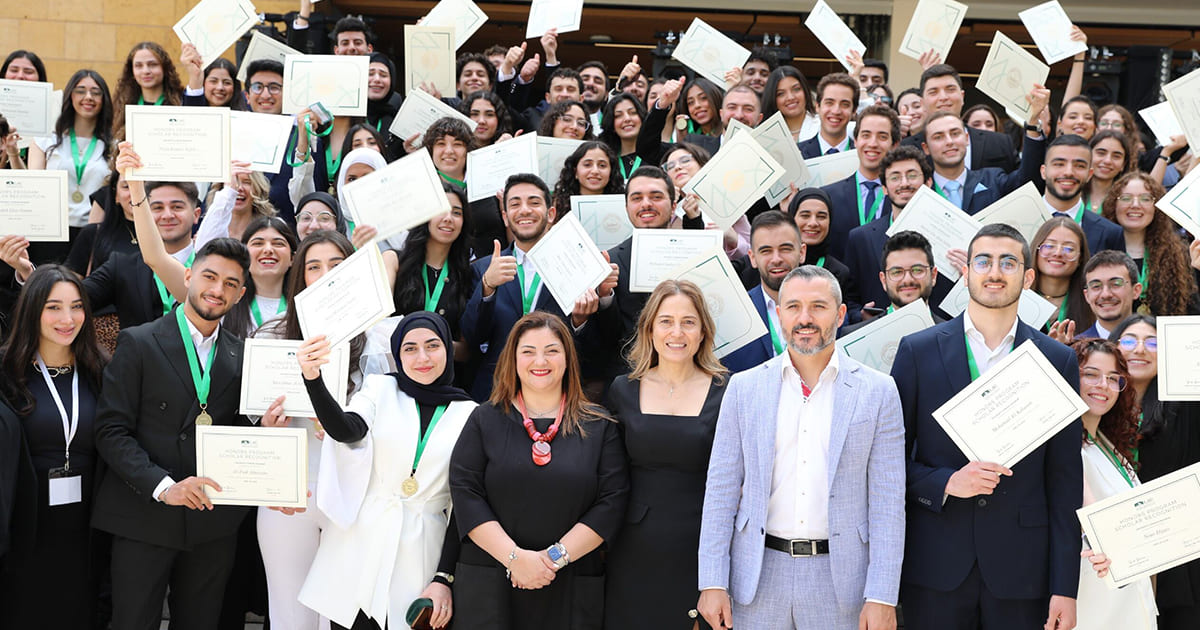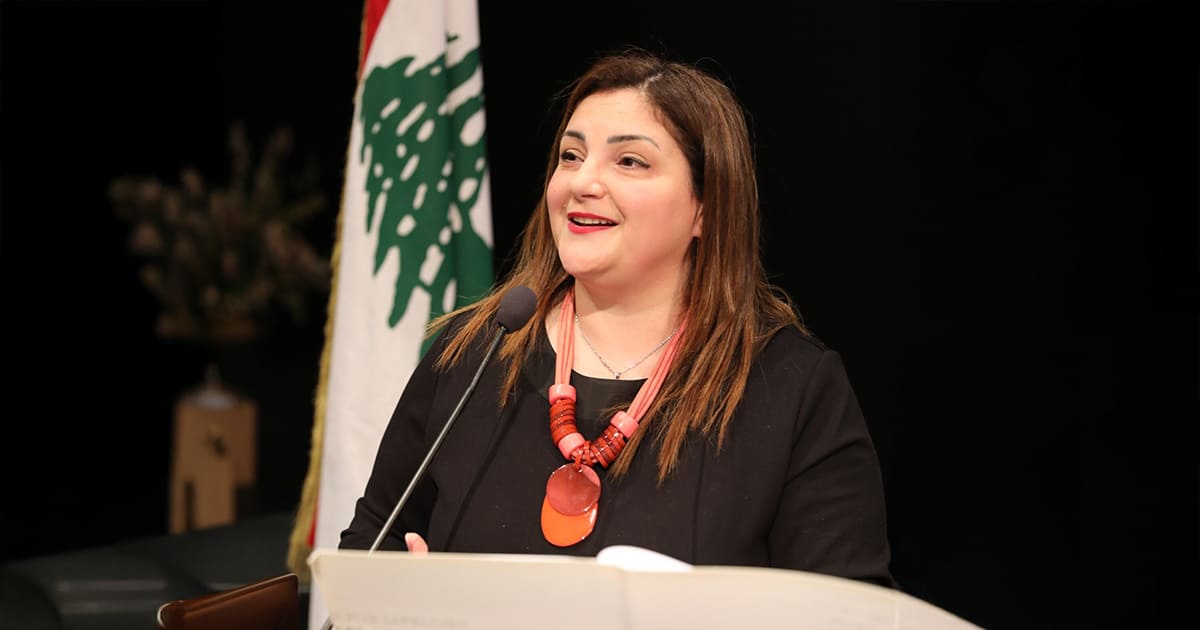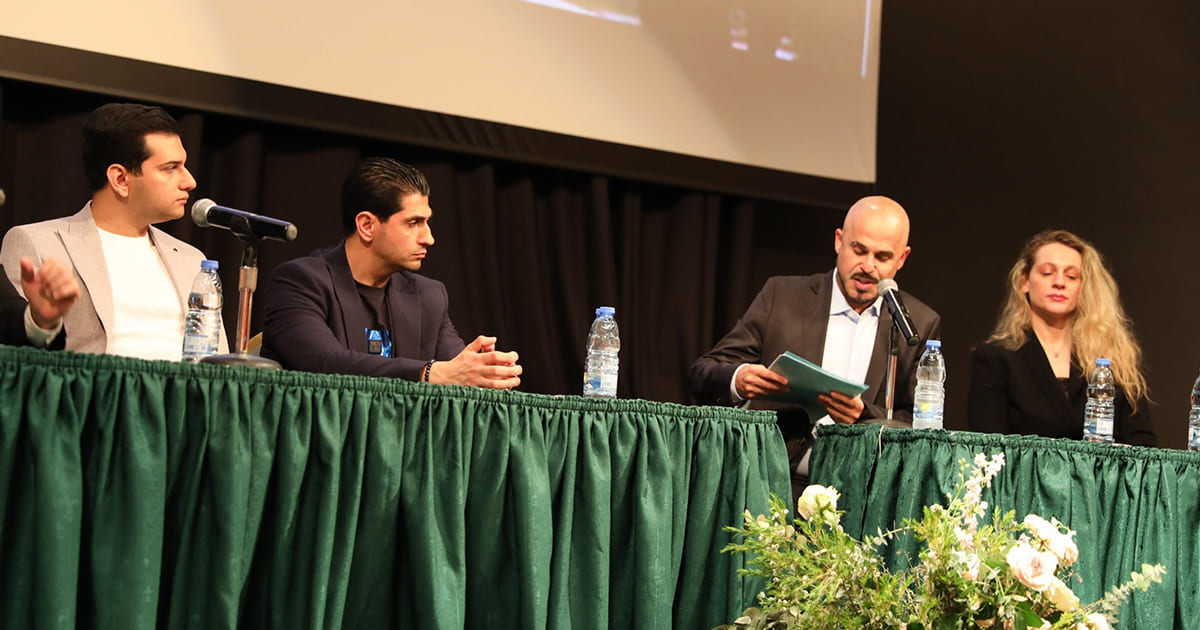LAU’s Honors Program Closes One Chapter, Opens Another
Graduates under the old Honors curriculum highlight a transition as a revamped program prepares a broader new generation of leaders.
Graduation ceremonies represent both an ending and a beginning. Often, this transition is even more significant for honors graduates, high-achievers who stand out for their academic excellence and exceptional talent.
As Lebanon’s pioneer in advanced undergraduate education, LAU’s Honors Program provides a stimulating environment for students involving enhanced classroom interaction, more focused mentorship, personalized guidance, and challenging projects and research tailored to their interests.
This year marks a turning point for the program that graduates many of its final class under the former major-specific curriculum while transitioning into a university-wide initiative. As of fall 2024, it has welcomed students across all schools, preparing them to shoulder the demands of a rapidly changing academic and professional world.
The program celebrated its latest cohort in a ceremony at the Gulbenkian Amphitheater on April 30, 2025, where 139 graduates from both the Beirut and Byblos campuses were recognized for their scholarly distinction.
The students, said Provost George E. Nasr in his opening speech, are “a remarkable group of individuals who rose above and beyond all sorts of expectations.”
Reflecting on the efforts and dedication each student brought to their studies at LAU, Dr. Nasr remarked that “every one of them was not required to enroll in the program but rather chose to be a part of it on their own.” This willingness, he added, goes to show the level of diligence they possess.
The event was attended by faculty and university leadership, who gathered to celebrate the culmination of a rigorous, yet rewarding academic milestone.
Senior Instructor of Chemistry and Honors Program Coordinator in Byblos Ghada El-Zakhem Naous spoke of the program’s concurrent evolution with the students’ own intellectual growth. “Each cohort has helped shape and elevate the program’s vision in more ways than one,” she said. “As one matured in depth, ambition and impact over time, the other responded, adapted and grew simultaneously.”
The previous iteration of the program was primarily designed to challenge students through exhaustive coursework within their majors and selected Liberal Arts Curriculum (LAC) courses.
Building on its strong foundation, the new program has expanded its reach to better align with the growing need for well-grounded graduates who are not only academically endowed but also adept at social and professional leadership.
A central feature of the revised program is the Honors Capstone Project, where students collaborate to tackle significant sustainability challenges in an interdisciplinary approach and develop a professional portfolio showcasing their academic and personal growth, creative work and career readiness.
“By moving beyond a purely academic framework,” said Lecturer and Honors Program Coordinator in Beirut Reine Azzi, “the program targets the development of transferable skills and competencies that employers and graduate programs increasingly value.”
At the ceremony, in addition to their certificate, each graduate received a medal of recognition for their commitment to learning and readiness to contribute to their fields and society at large.
“We look forward to the kind of changemakers you will become in representing Lebanon,” said Chair of the Liberal Studies Department at LAU’s School of Arts and Sciences Rony Khnayzer. “You’ve shown us that true excellence isn’t measured by pace, but by purpose and perseverance.”
The graduation celebrations were complemented by two panel discussions, in which LAU faculty and external experts examined contemporary technological advancements and the rise of artificial intelligence, followed by a debate on water security, energy production and food systems. The discussions helped raise discourse on some of the most pressing challenges facing the region and the world at large today.
At the end of the ceremony, students conducted their research presentations, demonstrating how the program’s emphasis on inquiry-based learning helped them apply their academic training to real-world problems.
Looking ahead, the Honors Program is poised for substantial growth, with the number of graduates expected to rise significantly in the coming years. Currently, 470 students are enrolled in the new program, a remarkable increase from last year’s 350.
For students and faculty alike, this signals an exciting step up in LAU’s mission to deliver an education that is as dynamic and forward-looking as the world its graduates will shape.


